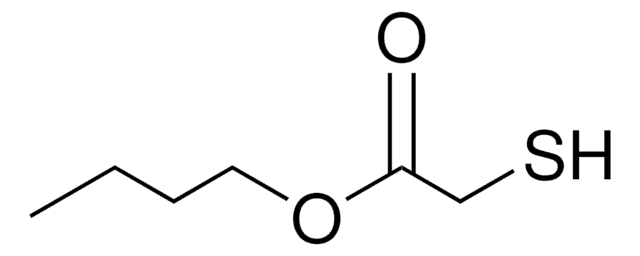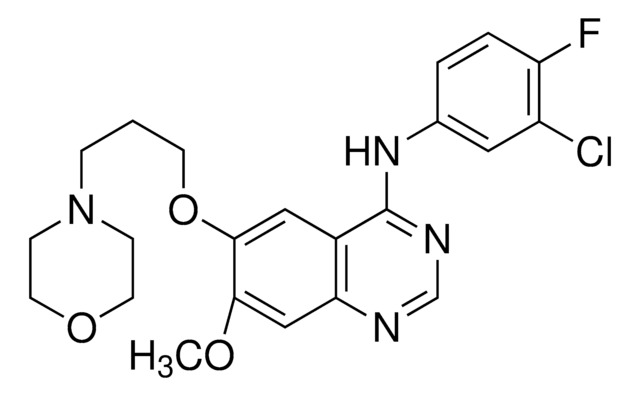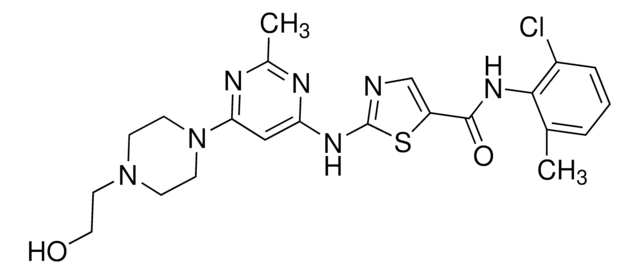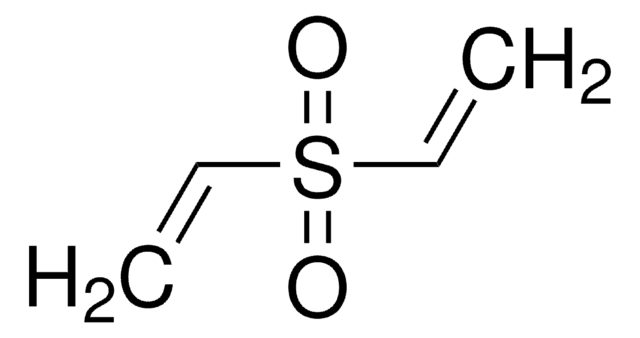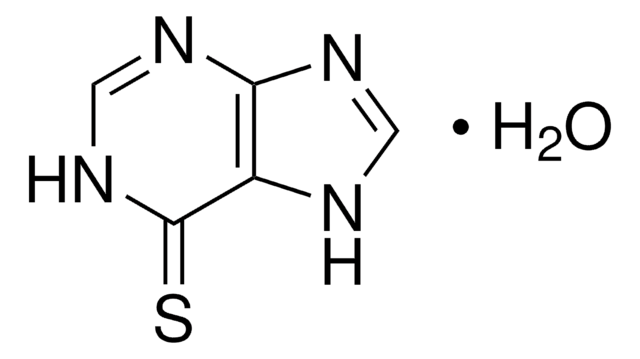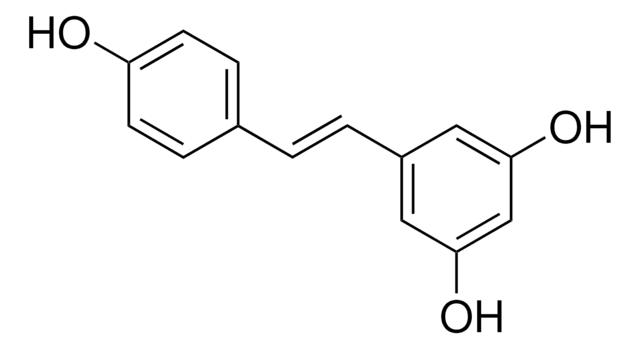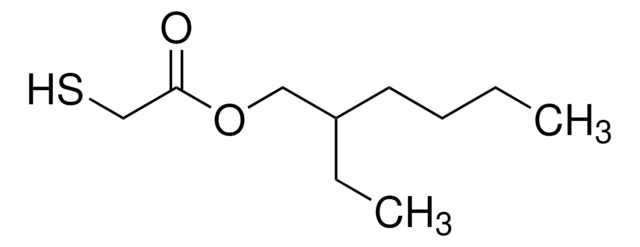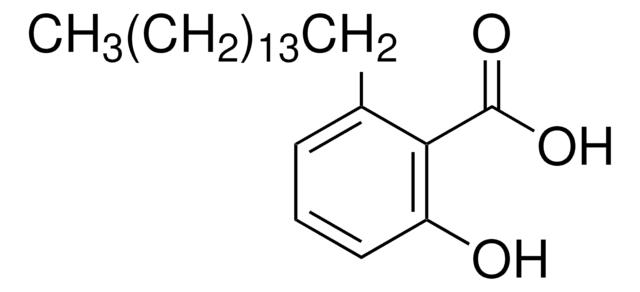Wichtige Dokumente
SML2869
Ispinesib
≥98% (HPLC)
Synonym(e):
(R)-N-(3-Aminopropyl)-N-[1-(3-benzyl-7-chloro-4-oxo-3,4-dihydroquinazolin-2-yl)-2-methylpropyl]-4-methylbenzamide, CK0238273, N-(3-Aminopropyl)-N-[(1R)-1-[7-chloro-3,4-dihydro-4-oxo-3-(phenylmethyl)-2-quinazolinyl]-2-methylpropyl]-4-methylbenzamide, SB 715992, SB-715992, SB715992
About This Item
Empfohlene Produkte
Qualitätsniveau
Assay
≥98% (HPLC)
Form
powder
Optische Aktivität
[α]/D +315 to +375°, c = 0.5 in chloroform-d
Farbe
white to beige
Löslichkeit
DMSO: 2 mg/mL, clear
Lagertemp.
2-8°C
SMILES String
Clc1cc2nc([n]([c](c2cc1)=O)Cc4ccccc4)[C@H](N(CCCN)C(=O)c3ccc(cc3)C)C(C)C
InChI
1S/C30H33ClN4O2/c1-20(2)27(34(17-7-16-32)29(36)23-12-10-21(3)11-13-23)28-33-26-18-24(31)14-15-25(26)30(37)35(28)19-22-8-5-4-6-9-22/h4-6,8-15,18,20,27H,7,16-17,19,32H2,1-3H3/t27-/m1/s1
InChIKey
QJZRFPJCWMNVAV-HHHXNRCGSA-N
Biochem./physiol. Wirkung
Signalwort
Danger
H-Sätze
Gefahreneinstufungen
Acute Tox. 2 Inhalation - Acute Tox. 2 Oral - Muta. 2
Lagerklassenschlüssel
6.1A - Combustible acute toxic Cat. 1 and 2 / very toxic hazardous materials
WGK
WGK 3
Hier finden Sie alle aktuellen Versionen:
Analysenzertifikate (COA)
It looks like we've run into a problem, but you can still download Certificates of Analysis from our Dokumente section.
Wenn Sie Hilfe benötigen, wenden Sie sich bitte an Kundensupport
Besitzen Sie dieses Produkt bereits?
In der Dokumentenbibliothek finden Sie die Dokumentation zu den Produkten, die Sie kürzlich erworben haben.
Unser Team von Wissenschaftlern verfügt über Erfahrung in allen Forschungsbereichen einschließlich Life Science, Materialwissenschaften, chemischer Synthese, Chromatographie, Analytik und vielen mehr..
Setzen Sie sich mit dem technischen Dienst in Verbindung.